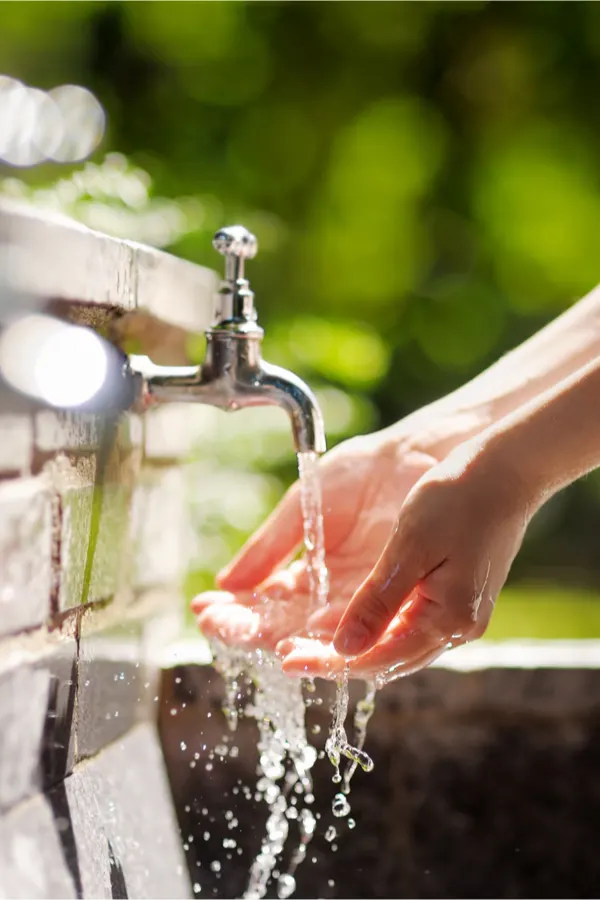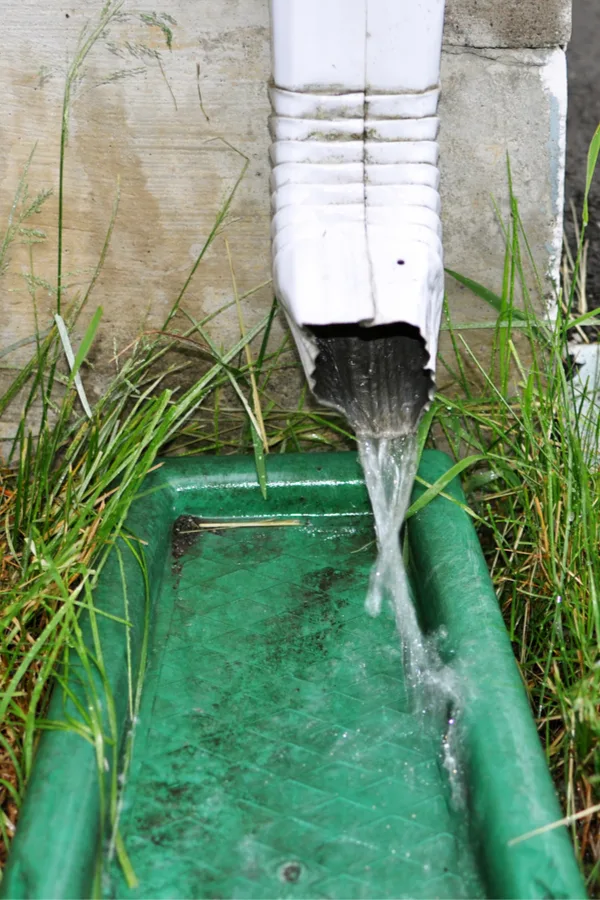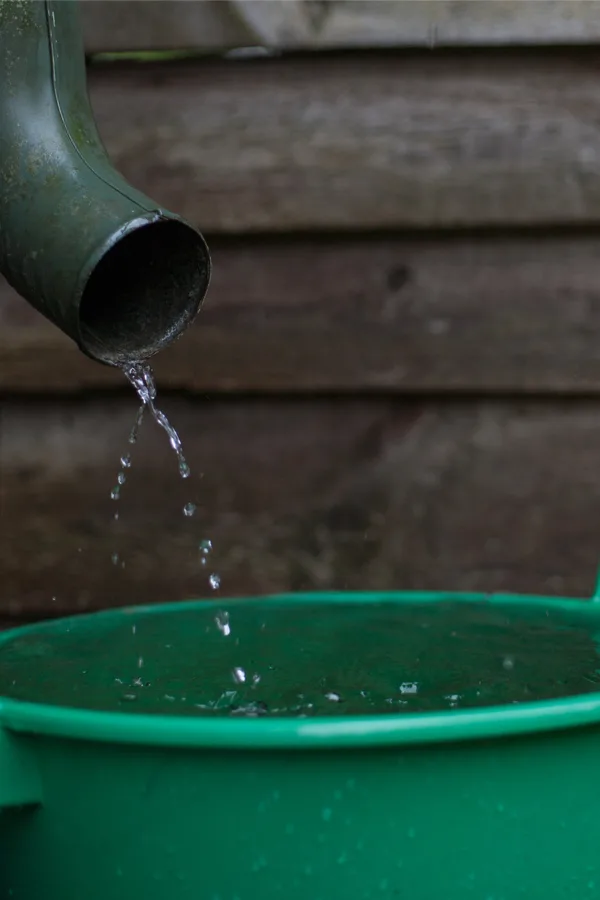This weeks how-to garden article and corresponding podcast is all about how to collect and use rain water for watering your flowers, garden and more!
Using rain water for your landscape is not only a great way to conserve on your city, well or community water supplies, it also has huge benefits for your plants. In fact, more advantages than you might ever imagine!
You can listen in below to the complete podcast on collecting and using rain water, or read on for our in-depth article on the subject. Either way, you will be ready to turn the power of a good rain shower into magic for your plants, lawn and landscape!
Why Rain Water Is A Great Choice – How To Collect And Use Rain Water
Beyond saving on your water bill or conserving the water from your home well, using rain water to hydrate your plants can be a much safer and healthier option for your plants.
Water that comes from a city or township is often treated with salts, chlorine and other chemicals. Unfortunately, those chemicals can be harmful to plants. Especially tender young transplants or seedlings.
And well water? It can certainly have its own issues too. Water from a well can contain high concentrations of iron, lime and other minerals that can also be harmful to plants. And if the water is first run through a softener, then additional salt can be an issue as well.

Not only can those chemicals and salts be harmful to plants, they can change the properties of fertilizers you might mix with the water. Compost tea, worm casting tea, and even commercial liquid fertilizers can have a different make-up when mixed with chlorinated or treated water.
Rain water, however, is about as natural and pure as you can get when it comes to water. Yes, it can have a few airborne particles in it for sure, but compared to city or well water, it is the far better choice.
With that in mind, lets take now look at the 3 major aspects of collecting and using rainwater:
- Collecting And Using Rain Water Easily & Safely
- Storing Collected Water Safely (safe – algae)
- How To Use Your Collected Water On Your Landscape
How To Collect Rainwater Safely & Easily
Collecting and using rain water can be as simple or as complicated as you want to make it. One thing is for sure, it doesn’t have to be costly. In fact, if you have gutters and downspouts on your house, you can start collecting for free today!

The easiest way to collect rain water of all is to use your home’s existing gutter system. As the rain hits the roof and descends into the main gutters, the water rolls down to a downspout, and then either into a storm sewer, or out into the yard or street.
There are two quick ways to convert the downspout water into a rain holding vessel. The first is to cut the gutter off and have it directly feed into a tote, barrel or bucket. (More on water holding vessels in a minute)
The second is to install an inline rain diverter to your downspout. This can be switched on or off depending if the rain tote or barrel is full. It will either allow water into the barrel, or bypass it to the regular drain. Product link: Downspout Rain Diverter
Know Your Roof – How To Collect And Use Rainwater
Metal roofs are best for collecting rainwater as there is little to worry about contaminating the water. Shingle roofs can be used, but you may want to put a filter on to get rid of any asphalt shavings that may come off.
To filter water prior to coming in, you can use a traditional filter, pantyhose, or even a strainer to keep debris from coming in and clogging your system.
Be very careful of collecting rain water from roofs with old shingles. There can be asbestos and other harmful remnants that can leach into your water.
How To Store Water Safely – How To Collect And Use Rain Water
For storage purposes, the sky is the limit as long as the vessel is clean and can store water safely. You can use a variety of homemade or purchased containers.
- Small rain barrels
- 5 Gallon Buckets – With lids
- Water Totes – Know what was in them!
- Special Tanks – Tanks that can handle water pressurization.
The real key is to make sure the barrels have been washed out and are clean. Avoid using containers that held any type of chemical or caustic material. It simply isn’t worth the risk of contaminating your plants or you.
If your container is clear, it is important to prevent light from hitting the water. This will allow algae & mold to form over time. If your vessel is clear, cover it with a dark tarp or material to keep the light out.

Finally, always make sure to cover your water to prevent mosquitoes from breeding in the standing water. This will also keep it safe from pets and prevent small children from climbing in.
Watering Plants – How To Collect And Use Rain Water
Depending on the system you use, you can have a spigot to hand fill watering cans, or hook a hose directly to it. Some tanks can even be pressurized to pump water wherever you need it.
Try to sit your water holding vessel up as high as it can be to gain the advantage of gravity. Even for hand filling, this will make it easier, preventing you from bending down to fill. Raising the location of your barrel also helps build pressure if using hoses.
Finally, even if your water tank cannot be pressurized, you can install an inexpensive in-line pump to your garden hose to pull water from the tank. They are easy to install and can be stored when not in use. Product : Inline Water Pump
Here is to collecting rain water from your house or outbuildings – and to watering your plants better than ever!
Follow Our Facebook Page For Even More Great Tips! Simple Garden Life Facebook Page
Simple Garden Life is a website dedicated to keeping gardening fun, simple and enjoyable! We publish two new articles each week along with a new garden podcast episode every two weeks. This article may contain affiliate links.
